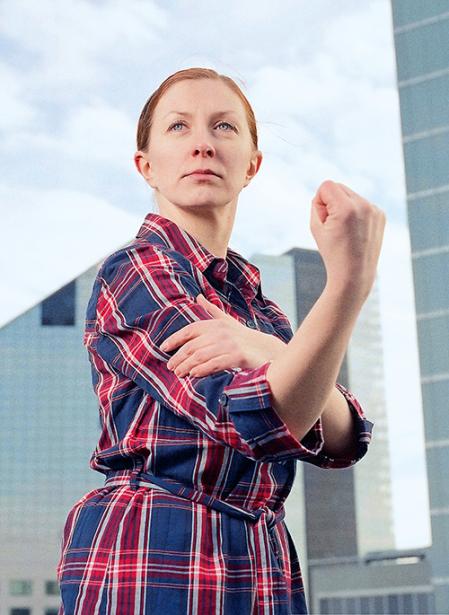The Rise of Rosie
Do, 25. April 2019, Gartensaal, 18 Uhr
What feminism can do? This is not a rehearsal
Prof. Dr. Anna-Kaisa Rastenberger, Exhibition Studies and Spatiality / Praxis-studies, University of the Arts Helsinki, Academy of Fine Arts
Vortrag in englischer Sprache
We have talked about representations, the female gaze, artists, nuns and care workers. We have talked about women’s laughter and feminist killjoys, quotas and inequality, Beyoncé and capitalism. We have talked about all these things when we have talked about feminism and photography. But what about photography exhibitions? How can a photo-based exhibition function as a feminist medium? What to focus on when viewing photographic exhibitions as places and situations where feminisms take place?
In her talk Rastenberger discusses works by photographer Marge Monko and the way they have become public. She approaches “exhibition” as an active act of displaying associated with both an opportunity to act and a responsibility for action, and as the spectators’ active and committed relationship to photographs. She talks about the acts of putting on “display” – this term entered the vocabulary of art exhibitions and has been associated with new forms of the economy and in particular ideas about (re)presentations that occur on surfaces. The word contains a loaded relationship between surface and background, and gives precedence to the former over the latter, which is more complex, challenging, and difficult to comprehend, and which is not shown, or displayed, but instead concealed.
Der Vortrag von Janeke Meyer Utne entfällt leider!
Do, 8. August 2019
Nancy Spero. Blasting the dichotomy between the universal and the particular,
Janeke Meyer Utne, Kuratorin, Lillehammer Art Museum
Vortrag in englischer Sprache
There are often hidden ideas about gender in the way we value and think about art. How does the gender dichotomy affect the notion that women and men are each other's complementary opposites in the interpretation of Nancy Spero's oeuvre? The art should point beyond the everyday here-and-now and be universal, be disinterested and universal. Is it true that the universal is detached from gender? Do beliefs about universality violate diversity, contradictions, and differences?
Teilen auf

